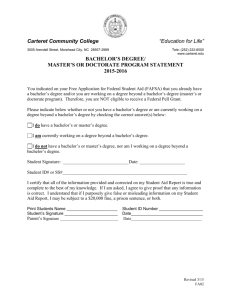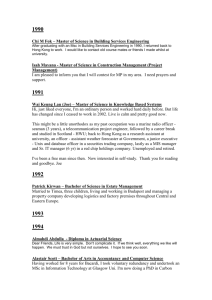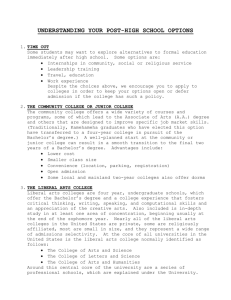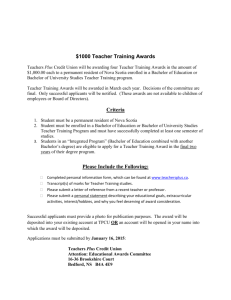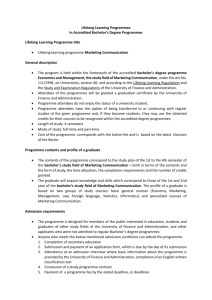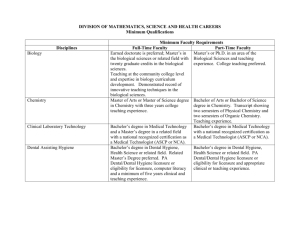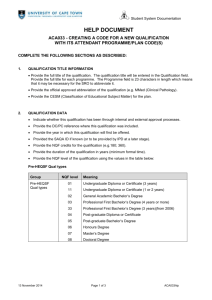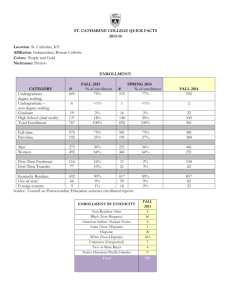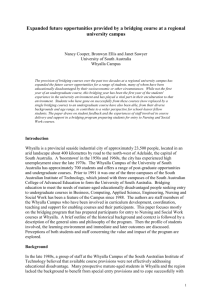University Terminology
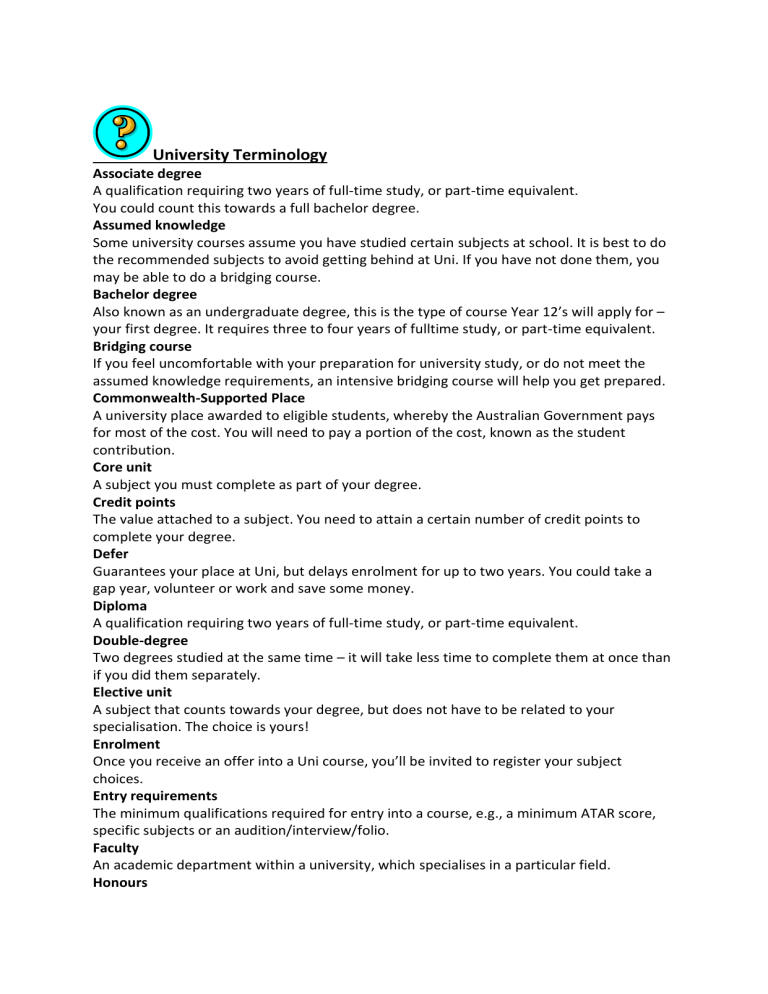
University Terminology
Associate degree
A qualification requiring two years of full-time study, or part-time equivalent.
You could count this towards a full bachelor degree.
Assumed knowledge
Some university courses assume you have studied certain subjects at school. It is best to do the recommended subjects to avoid getting behind at Uni. If you have not done them, you may be able to do a bridging course.
Bachelor degree
Also known as an undergraduate degree, this is the type of course Year 12’s will apply for – your first degree. It requires three to four years of fulltime study, or part-time equivalent.
Bridging course
If you feel uncomfortable with your preparation for university study, or do not meet the assumed knowledge requirements, an intensive bridging course will help you get prepared.
Commonwealth-Supported Place
A university place awarded to eligible students, whereby the Australian Government pays for most of the cost. You will need to pay a portion of the cost, known as the student contribution.
Core unit
A subject you must complete as part of your degree.
Credit points
The value attached to a subject. You need to attain a certain number of credit points to complete your degree.
Defer
Guarantees your place at Uni, but delays enrolment for up to two years. You could take a gap year, volunteer or work and save some money.
Diploma
A qualification requiring two years of full-time study, or part-time equivalent.
Double-degree
Two degrees studied at the same time – it will take less time to complete them at once than if you did them separately.
Elective unit
A subject that counts towards your degree, but does not have to be related to your specialisation. The choice is yours!
Enrolment
Once you receive an offer into a Uni course, you’ll be invited to register your subject choices.
Entry requirements
The minimum qualifications required for entry into a course, e.g., a minimum ATAR score, specific subjects or an audition/interview/folio.
Faculty
An academic department within a university, which specialises in a particular field.
Honours
An additional year of full-time study attached to your bachelor degree to allow for greater understanding and specialisation.
Lecture
A formal (and usually large) class conducted by an academic lecturer.
Major
A specialisation in your bachelor degree. You’ll be able to tailor your major, and can usually complete more than one in a degree.
Minor
A sub-specialisation in your bachelor degree – usually four subjects.
Orientation
An introduction to university life, its facilities and your area of study before the start of your first semester.
Postgraduate
A qualification, usually following on from a bachelor degree, allowing for more in-depth research and specialisation. This may be a Master’s degree or a PhD.
Prerequisite subjects
Year 12 subjects you must successfully complete to be eligible for entry into a course – there may be alternative entry options like completing a TAFE course or a university bridging course.
Recommended subjects
Year 12 subjects that will prepare you for your degree. If you have not completed one, you may be able to do a bridging course.
School
A department specialising in a particular field within the faculty (academic department) of a university.
Tutorial
A small class in which discussion and questions are encouraged. Tutorials are conducted in addition to lectures, and attendance may contribute to your final mark.
Undergraduate
When you start Uni, you will be an ‘undergraduate’ student, working towards your bachelor or associate degree – your first degree.
Unit
A subject within a course. Each subject, or unit, has a specified number of credit points that count towards your degree.
Work placement
Practical training in a work environment, which may be a part of your degree. Also may be called Industry Based Learning.


